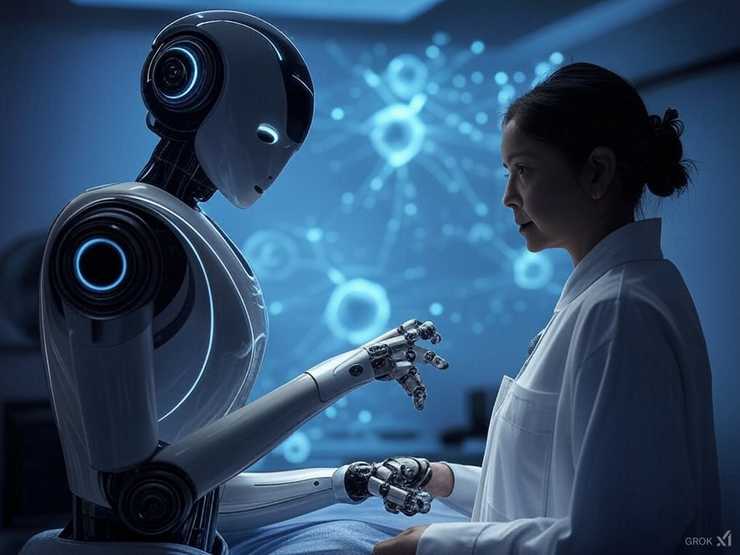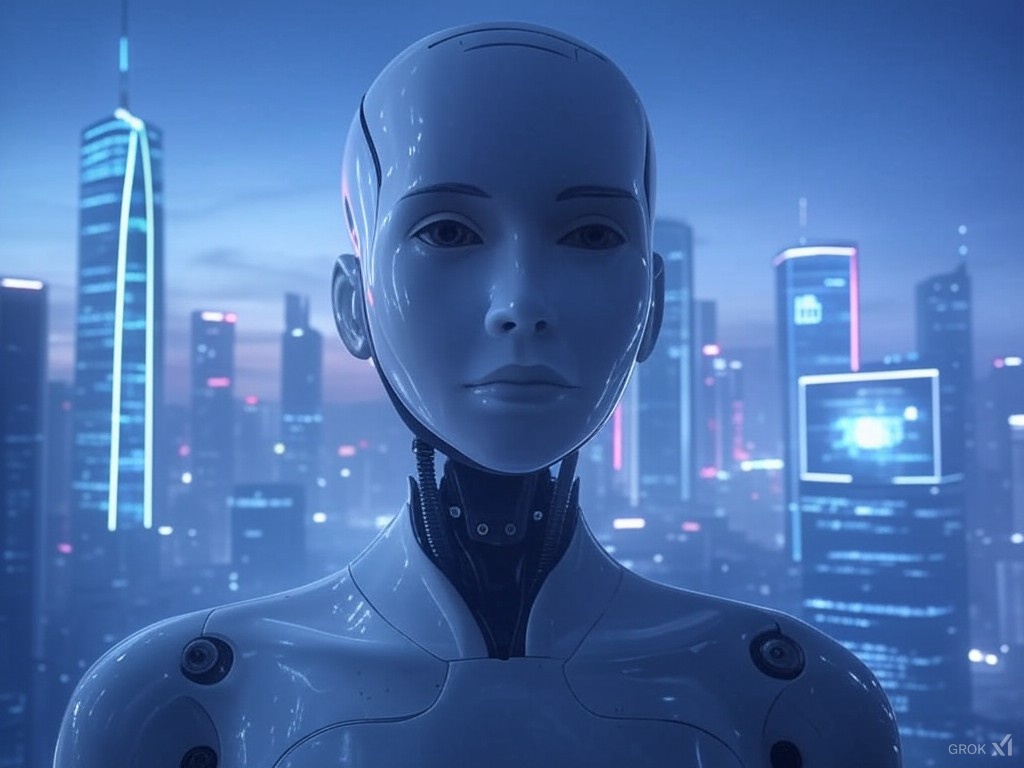What is the future of artificial intelligence (AI)? This detailed article discusses the history of AI, potential threats, its use in the health sector, the role of AI in Cancer Research, and future prospects. Know how AI is changing our lives and about its interesting episodes.
Hindi Essay on Ai | Future of artificial intelligence: possibilities, threats, essays on AI’s contribution in health sector
Artificial intelligence or AI is one of the most popular and impressive techniques in today’s time. It is not only affecting our daily lives, but also changing industry, health, education, and even art and culture. What is the future of AI? This question arises in everyone’s mind today. In this article we will discuss in detail the history, potential threats, its use in the health sector, and future prospects.
History of artificial intelligence | History of Artificial Intelligence:
Early concepts: The concept of artificial intelligence is not new. Its roots go to ancient times, when humans wondered whether machines can also think. However, modern AI started in the 20th century. In the 1950s, British mathematician Alan Turing proposed the “Turing Test”, which was to check if a machine could display human intelligence.
AI birth: In 1956, the word “artificial intelligence” was first used in a conference held at Dartmouth College. This conference is known as the birth of AI. Subsequently, in the 1960s and 1970s, AI researchers began working on techniques such as machine learning and neural networks.
Development of AI: In the 1980s and 1990s, AI achieved many achievements. During this time, the expert system developed, which were capable of performing specific tasks. However, during this time AI also faced many challenges, due to which it was called “AI Winter”.

Currently the role of artificial intelligence. Role of Artificial Intelligence in the present:
Machine learning and deep learning: Today, the most important part of AI is machine learning and deep learning. Machine learning is a technique that gives computers the ability to learn from data. Deep learning, which is an advanced form of machine learning, has brought AI to new heights. This technique has revolutionized areas such as image recognition, voice assistant, and natural language processing.
AI’s effect in daily life: Today, AI has become a part of our daily life. The smartphone shows examples such as Voice Assistant (eg Siri and Google Assistant), recommendation systems in online shopping, and content filtering on social media. In addition, AI is also playing an important role in areas such as health services, finance, and transport.
AI and Employment: Due to the increasing influence of AI, the concern is also increasing whether it will reduce employment opportunities. However, experts believe that AI will also create new employment opportunities, especially in the field of technical and data science.
Possible danger of artificial intelligence | Potential Dangkers of Artificial Intelligence:
Effect on jobs: AI is expected to end many traditional jobs. For example, driver’s jobs may be in danger due to automatic vehicles. However, it is also believed that AI will create new types of employment.
Data privacy and safety: AI requires large amounts of data, leading to issues of data privacy and safety. If data is misused, it can have serious consequences.
Ethical issues: How to take AI decisions? Can AI be given the ability to take moral decisions? These questions will affect the development of AI in future.
Autonomous weapon: AI can also be used in the development of autonomous weapons, which can be a major risk. If these weapons are lost control, it can have disastrous consequences.

Use of AI in the health sector | Use of ai in the health sector
AI in Cancer Research: AI has revolutionized cancer research. For example, Google’s Deepmind has developed an AI system that is more accurate than human radiologists in breast cancer detection. Such techniques can help can cancer detect cancer quickly and make treatment more effective.
Disease diagnosis and treatment: AI is also being used in the diagnosis and treatment of various diseases. For example, IBM’s Watson for Oncology provides recommendations for the treatment of cancer. This helps system physicians to choose the best treatment options.
Drug Research: AI is also playing an important role in drug research. For example, AI is being used in the discovery and development of new drugs. This technique can make the process of drug research faster and more efficient.
AI interesting episode and case study | AI Interesting Stories and Case Studies
1. AI and Art:
AI has also made its mark in the field of art. The painting and music made by AI has shocked people. For example, the painting “Edmund D. Edlami” made by AI was sold in millions of dollars in auction.
2.Aai and Games:
AI has defeated human champions in sports like chess and Go. In 1997, IBM’s deep blue computer was successful in defeating Gary Kasparov, world champion of chess.
3.AI and Medicine:
AI has also revolutionized the field of medicine. Techniques developed by AI are helping to detect diseases like cancer. For example, Google’s Deepmind has developed an AI system that is more accurate than human radiologists in breast cancer detection.
Conclusion: The future of artificial intelligence is very bright. It is not only making our lives simple and convenient, but also creating new opportunities and possibilities. However, along with this, there is also a need to pay attention to the moral and social influences of AI. In the future, by using AI correctly, we can create a better and rich world.
Reference:
1.Russell, S., & Norvig, P. (2020). Artificial intelligence: a modern approach. Pearson.
2.Goodfellow, I., Bengio, Y., & Courville, A. (2016). Deep Learning. Mit press.
3. Topol, EJ (2019). Deep Medicine: How Artificial Intelligence Can Make Healthcare Human Again. Basic books.
4.mockinsey & company. (2021). The future of work after covid-19. Retrieved from McKinsey website.
5.google deepmind. (2020). AI for Breast Cancer screening. Retrieved from Deepmind Blog.





